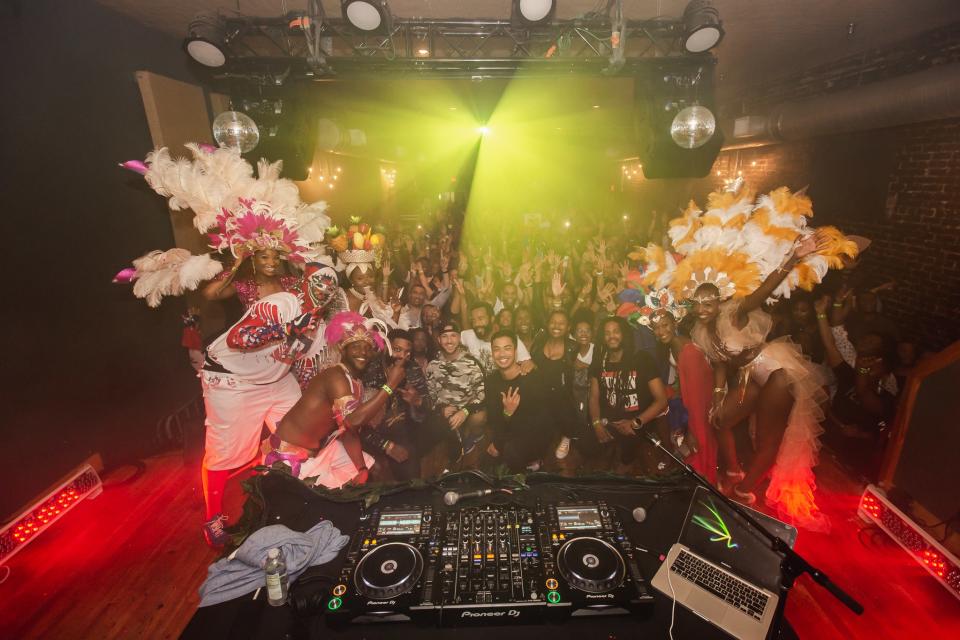Michael Brun on His Album "Lokal," the Beauty of Haitian Music, and Building Bridges
Back when he was in college, Michael Brun went from having a chem test on a Tuesday to playing at Miami's Ultra Music Festival on Friday. Now just a few years later after leaving school to pursue his music dreams, Michael is releasing his new album Lokal, a collection of contemporary Haitian music.
"People know Reggae music, they know Jamaican music, they know Dancehall, they know Reggaeton," Michael, who's half-Haitian, half-Guyanese, tells Teen Vogue. "Generally you'll know at least one vibe from a country in the Caribbean, but Haiti for some reason is off the map. I wanted to change that."
Michael points out there are a bunch of subcategories under the umbrella of Haitian music, a mosaic of different genres that relate to one another. There are more traditional jazz influences along with the sounds of Konpa, a sort of Haitian pop. The street music has a number of components, such as the tribal and ritualistic Rara music. With such a variety, Michael had plenty to work with for his album Lokal.
The album is a nine-track project ("I feel like the number nine is like right before ten where everything resets and you're about to get into something else") featuring collaborations from a slew of artists, from Major Lazer and Arcade Fire's Win Butler to Haitian vocalist J. Perry. All of them are perfect for a summer day of partying, sure to get you on your feet and grooving.
Originally a classically trained musician, Michael has played the piano since he was six and eventually picked up the guitar and violin. He started producing and DJing when he was 15. But back then, he didn't see himself growing up to be a musician. In fact, he was on track to become a doctor. After attending military school, he had a full scholarship at Davidson College in North Carolina before dropping out with the support of his advisor, parents, and even the school's dean. Now, he's selling out venues like Brooklyn Steel.
On top of bringing contemporary Haitian music to the genre, Michael also notes what it's like being a musician from a mixed background who doesn't fit the typical archetype of those in the world of EDM, which is predominantly white and male. He remembers that even growing up in Haiti he'd be called Jackie Chan because he was one of the few Asian-looking people in his community. But now it's an advantage, being able to build these bridges.
"I see it as a huge strength, because I'm able to connect with so many different people around the world and not feel that it's forced in any way," he says. "There are opportunities for all kinds of artists. And I've actually actively worked on collaborating with all different types of people. I work with a lot of women in music I make. I work with a lot of people of color. I really want to share as much of that as possible. Because I think it's important for the world to see different points of view."

Through Lokal and his music, Michael also wants to put Haiti in a different light than how many people see the country. This was especially important to him considering the aftermath of the catastrophic 2010 earthquake that took over 300,000 lives.
"I feel like it's a responsibility and I'm very aware of that. The country's image, whatever people see in the media, I've seen the negative effects of that on the people in Haiti, in my community, and I want to change that," Michael says. "I hope that it serves as a platform too. 'Cause I think that's been a very active project of mine is that I don't want to be the only successful person from Haiti. I want other artists to continue to rise up and tell their own stories."
Related: Meet Cuco, the Spanish-Singing, Trumpet-Playing Artist You're Going to Fall Head Over Heels For
Originally Appeared on Teen Vogue

